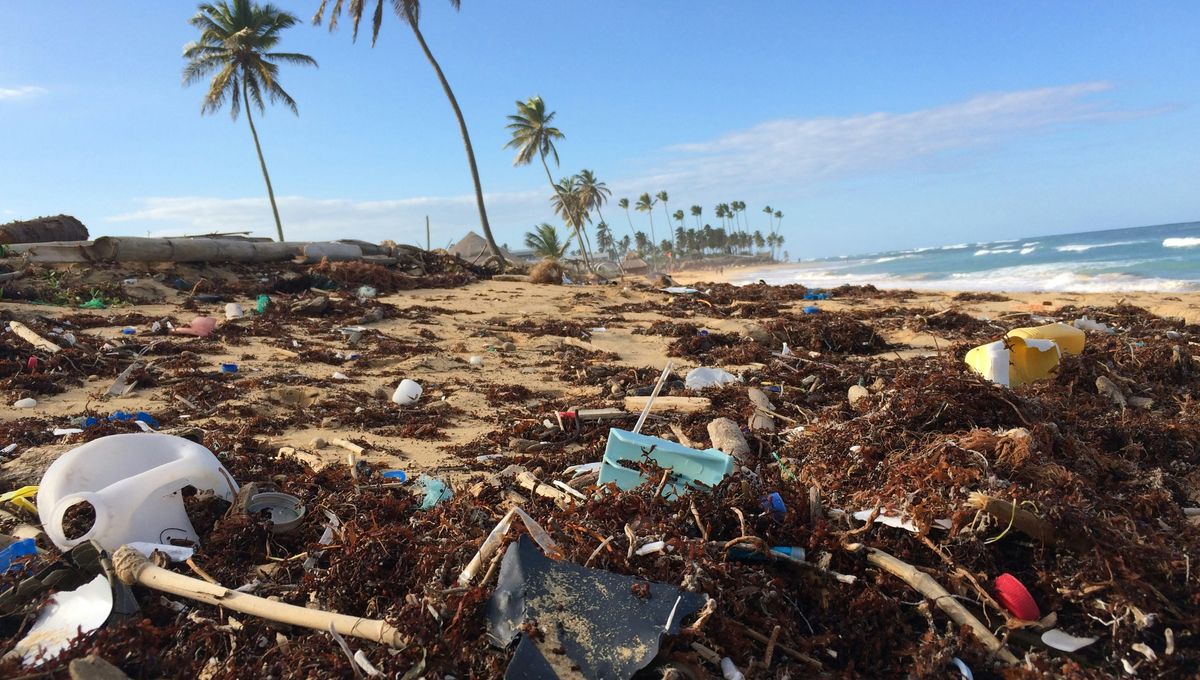
Efforts to build a global treaty to combat plastic pollution fell apart over the weekend. While international agreements are rarely straightforward, many believe powerful forces were working to undermine the talks: big oil and countries hellbent on fossil fuel production.
Almost 200 nations recently met in Busan, South Korea, for the fifth session of the Intergovernmental Negotiating Committee (INC5) for a Global Plastics Treaty. Looking at ways of reducing plastic production was a prime concern, but the talks also aimed to address the elimination of certain plastic products, chemicals of concern in products, improved design of plastics, extended producer responsibility, and improved recycling.
After two years of negotiations and a week of meetings, the summit came to a close on December 1 without any real agreement being signed.
The majority of countries appeared keen to strike a robust deal and build a legal framework to address plastic pollution. However, these efforts were hindered by a “small minority of states” that opposed some key ideas essential for driving meaningful change.
The charge to oppose change was led by the planet’s major petrostates, namely Saudi Arabia, which reportedly argued that any measures to stop excessive plastic production “penalizes industries without addressing the actual issue of plastic pollution.”
“For too long, a small minority of states have held the negotiation process hostage. It is abundantly clear that these countries have no intention of finding a meaningful solution to this crisis and yet they continue to prevent the large majority of states who do,” Eirik Lindebjerg, Global Plastics Policy Lead at the World Wide Fund for Nature (WWF), said in a statement.
The interests of oil-producing countries were bolstered by fossil fuel corporations, which showed up in force at the summit. Greenpeace UK reported that the talks were “infiltrated” by at least 220 fossil fuel lobbyists, more than the total delegates from all European Union member states and twice the number of delegates from Pacific Island Nations.
“Strong political headwinds make this more challenging, but the lesson from INC5 is clear: ambitious countries must not allow the fossil fuel and petrochemical industries, backed by a small minority of countries, to prevent the will of the vast majority,” Graham Forbes, Greenpeace Head of Delegation to the Global Plastics Treaty negotiations and Global Plastics Campaign Lead at Greenpeace USA, said in another statement.
Very little concrete action was taken last week in Busan, though there were faint glimmers of hope. Inger Andersen, Executive Director of the United Nations Environment Programme, argued that the talks had “moved us closer” to agreeing on a global legally binding treaty. There was also optimism in the fact that negotiations will resume in 2025 at a location that’s yet to be determined.
For now, though, it’s back to business as usual.
“When member states unanimously agreed to deliver a treaty the planet needs by 2024, the world believed them. Now, the price for inaction is far greater than wasted time, it puts both planetary and human health on the line and sets us up for a scenario where ambition could diminish over time,” added Erin Simon, vice president and head of plastic waste and business at the WWF.
Source Link: The World's Plastic Pollution Talks Were A Major Flop – Why?